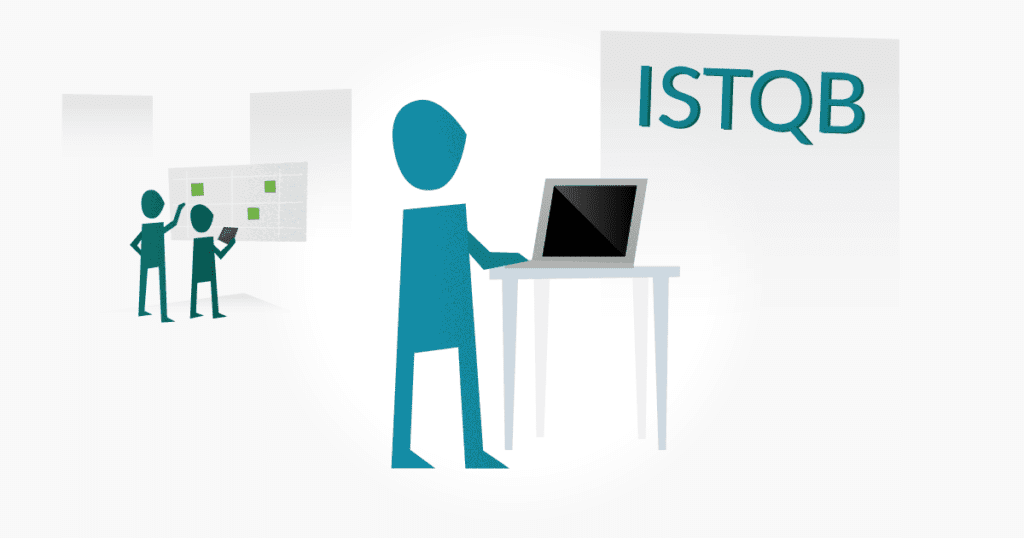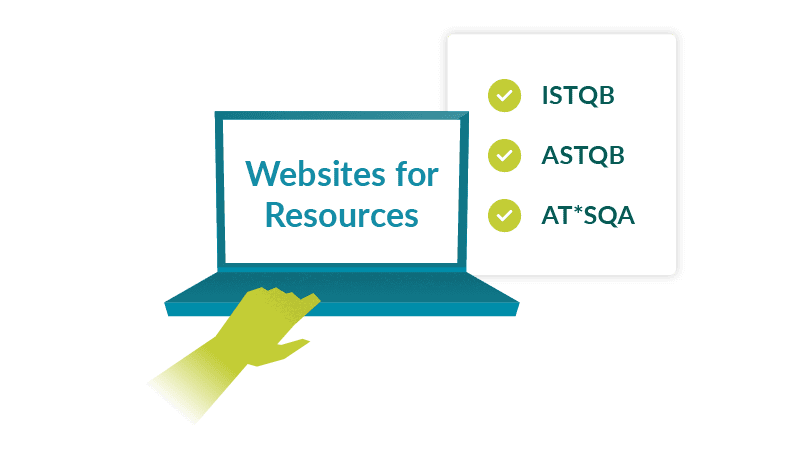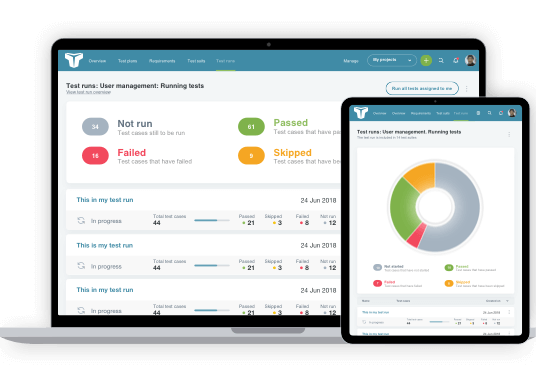The International Software Testing Qualifications Board (ISTQB) offers software testing courses with globally recognized software testing certifications. The Certified Tester Foundation Level (CTFL) is the most commonly acquired certification and is a prerequisite for all other ISTQB exams. Being certified can lead to jobs, promotions, and other benefits. Some companies even require certification for employment as a software tester.
The exam is suitable for anyone in the technology industry at any level who is interested in software testing. The syllabus covers foundational topics like the testing fundamentals, why testing is necessary, test levels, test techniques, and defect management. Having some prior experience or knowledge of industry terms would be beneficial.

Certifications Structures
As previously mentioned, it’s necessary to have passed the Certified Tester Foundation Level before taking any other ISTQB software testing courses and exams. After that, testers can choose their focus path to obtain higher-level certifications.
Core – The Core path, which focuses on the overall quality of systems, and doesn’t follow a specific methodology, offers two more tiers of certification.
- Advanced – The Advanced level is more in-depth with three options; Test Manager, Test Analyst, and Technical Test Analyst.
- Expert – The Expert level is the most elevated with two options; Improving the Process or Test Management.
Agile – The Agile path, as would be expected, focuses on Agile methodologies, following the principles within the Agile Manifesto. This would be a good option for anyone already working on an Agile project or who wants to start implementing Agile within their workplace.
- Agile Foundation Level Extension – This CTFL extension focuses exclusively on Agile testing basics. The study material is not as extensive as the original foundation exam, as an understanding of testing basics is presumed.
- Advanced Level – The advanced level Agile certification goes into greater depth with the expectation the tester will have more extensive Agile testing knowledge.
Specialist – Specialist certifications are available for specific types of testing or industries. These are things like Security Tester, Mobile Application Tester, Gambling Industry Tester, and Usability Testing.
Websites for Resources
The route to certification can be confusing because of the multiple websites and acronyms. So let’s clarify the confusion by discussing the different resources.

ISTQB – This is the leading website and resource. Its board determines the global standards for software testing. Their syllabus, exam information, glossary, and practice exams are the most up-to-date.
ASTQB – American Software Testing Qualifications Board is the ISTQB site for the United States, yet many other English-speaking countries fall under its jurisdiction. The ASTQB board and boards from other countries combine to create the ISTQB. The site has many resources, including the syllabus, blogs, podcasts, and practice exams.
AT*SQA – The Association for Testing and Software Quality Assurance is the exam provider for the ASTQB. This site is also full of resources, but its most important feature is that it’s where you need to register for any ISTQB exams. You can create an account, purchase vouchers, and schedule exams here. When scheduling, you can take the exam in a professional examination center or online at home by proctor.
Bonus Features of AT*SQA
Official Registry – If a tester signs up through AT*SQA and passes the certification, they can be added to the official U.S. list of certified testers. Their name, results and acquired certificates will be searchable by anyone, which benefits jobseekers. An extra bonus is being able to add a personal URL on their resume.
Micro-Credentials – AT*SQA offers ‘Micro-Credentials’ that are short courses and exams one can take to extend knowledge of a particular topic. Similar to Specialist certifications, yet smaller than a foundation extension, these small pieces of training offer evidence of knowledge for micro subjects within software testing. Topics include API testing, DevOps testing, Performance testing, and Test Automation.
Testing Tiers – Testing Tiers Software Tester Rankings is a resource provided by AT*SQA. It tallies an individual’s ‘rank’ among their peers based on the number of certifications, micro-credentials, and education one has passed. However, this comparison is biased because it is curated from paid courses and certifications that may or may not prove one candidate’s advanced knowledge over another.
Time extensions – If English is not one’s native language, there is the opportunity to request 25% more time to take the exam. This option is available when purchasing an exam voucher and when scheduling to take the exam.
Are Certifications worth it?
Within the software testing community, the need for certifications is highly debatable. Many feel it is a waste of money because certifications cannot replace experience. Some feel one shouldn’t have to be certified in order to prove their abilities. Others argue that a certification shown on your resume can get you past an initial screening for an interview. Another argument is that credentials may be what’s needed to show you are serious about growing your career, putting you on a path to a promotion. Indeed, if you do not have experience and are trying to get into the field, a certification can help, but both sides of the argument can be true.

The decision to get a certification should be a personal choice based on a combination of your experience, career goals, financial situation, and desire to learn. Certifications involve time and money, so you must decide if they are worth the investment. Some employers will pay for the course, exam, and/or time required for studying. Others will require you to put all the effort in, aside from your work duties.
Let’s discuss the benefits and risks of certifications.
Benefits of taking ISTQB software testing courses
- Knowledge – Even if you study but fail the exam, you will have obtained knowledge that will always stay with you and help you become a better tester.
- Status – Certifications can bring a sense of pride, and you should be proud! You set out to better yourself and took steps to advance your career.
- Career Advancement – Certification may not guarantee a promotion, but it can help your career in the long run. And at the very least, having a certification will not be seen as a negative when looking for a job or promotion.
- Leverage – Having a certification grants one a certain level of validation. Software testers are often asked to develop proper processes, and having a certificate validates your voice when you say, “This is the correct way of doing things.”
Risks to consider when taking ISTQB software testing courses
- Time – Studying takes time. Many courses take upwards of 40 hours to complete. This can amount to a significant investment depending on someone’s situation. You may not want to pursue a long-form certification if you can only spare 2 hours a day to study.
- Money – Exams cost anywhere from $199 to $575. Although paid courses that teach the syllabus are not required, they can still cost several thousand dollars. And if you fail an exam, retakes are an extra expense.
- Embarrassment – If a company invests money for you to take a course and the exam, and you do not pass, this can be embarrassing and cause social tensions. In some cases, you could be required to pay the company back.
Certification vs Boot camp
Signing up for a software testing boot camp is an alternative to certification. These courses are usually quite expensive, ranging from two thousand to twenty thousand dollars, and they also demand a time commitment of 12–15 weeks with full-time, part-time, online, or in-person options. They cover basic testing topics found in the ISTQB syllabus but also more advanced topics and hands-on experience with tools used in the industry. Some boot camps even offer a guaranteed job after completion. Choosing a boot camp is based on the same reasons as a certification. It is a personal decision based on experience, desires, and a person’s time and financial availability.
Conclusion
The ISTQB certifications are globally recognized and can offer several benefits if attained. There are many options for the user to gain knowledge on basic or advanced testing material. However, the path to certification will take time and money. Therefore the user should consider if the rewards will outweigh the investments.

